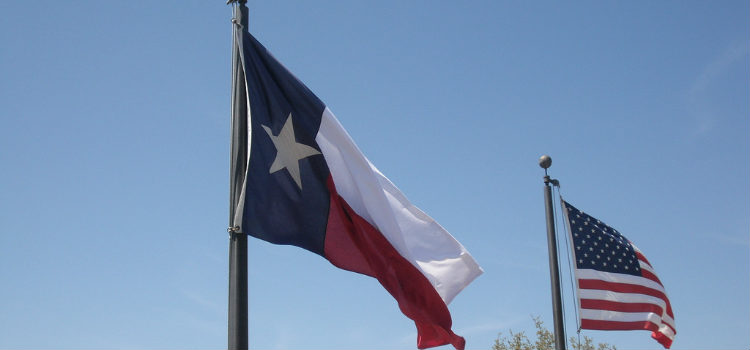Both of Texas State Representative Joseph Farias’ (D) bills relating to industrial hemp in the state were heard by the Committee on Agriculture & Livestock on March, 18 – the possible first step to the bills being moved from the committee and to the floor for a vote.
HB 557 would allow hemp cultivation for research at Texas colleges while HB 1322 would allow hemp to be grown and processed by farmers in Texas. According to Farias’ testimony the Texas Department of Agriculture would adopt rules and administer fees for licensing and farmers would have their license revoked for growing marijuana.
During the hearing, at which testimony from farmers and business owners was heard, Rep. Drew Springer (R) questioned why licenses would be necessary because no other crop requires a license in the state and hoped that the process would not require fingerprinting.
Farias said the license would prevent marijuana growers from potentially disguising their crops as hemp and said the Agriculture Department would be responsible for rules regarding fingerprints, but that he “hoped” that would not be involved.
During his testimony Farias told the committee that in 2014 Texas imported $621 million in industrial hemp products, including “clothing, paper, auto parts, building materials, hemp foods and body care.”
“Hemp is the next great Ag-product in Texas,” Farias said.
Shelia Hemphill, Policy Director for Texas Hemp Industry Association, testified that the Texas statute is patterned after Tennessee’s legislation and that, contrary to popular belief, hemp production is allowed under both federal and Texas state law.
According to Hemphill, the 2015 federal budget includes language prohibiting the Drug Enforcement Agency from interfering with hemp manufacturers in states where hemp production is allowed. She also said the Texas statute that outlaws marijuana includes language excluding hemp from the definition of cannabis sativa.
Hemphill was also questioned by Rep. Springer who suggested that TDA reports show that hemp would not have a yield to match cotton, a staple crop for Texas farmers. Hemphill pointed to documentation from the 1930s showing a yield of “200 pounds per acre in a 60 to 90-day growing cycle” easily rivaling cotton production.
Two fourth-generation Texas farmers also testified that hemp could change the course that their respective farms are on; noting that droughts have plagued their family businesses and hemp is drought resistant.
Will Shuman, of Shuman Farms, testified that cotton has become “risky.” He said a 50-pound bag of cotton seed, which covers 10 acres, costs $400 and the chemicals that he needs to help grow the cotton eats into the margins from the crop.
“I don’t see any reason why Texas farmers cannot produce this,” Shuman said.
Austin Rice, of Rice Ranch, told the committee that he presently has “hundreds of acres of dormant fields” and he is looking for alternatives as his production prices are going up while commodity prices are going down.
Several Texas business owners testified that Texans prefer locally sourced products and they were already in talks with potential Texas-based hemp producers to source their needs.
Derek Cross, representing both Hemp Solutions and Colorado Hemp Tea, said that he has already started a seed bank for potential farmers in Texas. Cross, a resident of Frisco, Texas who grew a small hemp farm in Colorado, said that his hemp seed repeatedly tested at .02 percent THC (the psychoactive ingredient in marijuana), falling under the threshold allowing for seed to be classified as hemp.
Cross testified that his small farm — less than one acre – would have been worth $20,000 had he been able to make profit from it. However, because his is a pilot farm, he was unable to sell what he produced. He was able to keep the seed which he will, eventually, be allowed to sell to farmers in his home state. Cross also explained that hemp would help farmers remediate soil subjected to chemicals, such as those used to help cotton grow, through a process called phytoremediation.
Phytoremediation uses green plants to help stabilize contaminated soil.
Christopher Brown, owner of Canyon Lake Texas-based cosmetic company Hemp 360, explained that he imported 600 gallons of hemp oil from Canada in 2014 which cost him $30,000 and testified that his neighbors could making that profit instead of it being exported.
Currently just 21 states have regulations in place that allow the cultivation of industrial hemp. Neither of the Texas bills would have any fiscal impact on the Agriculture Department if passed.
Kevin Griste, president of K-Global Fibers located in Bryan, Texas, called hemp “one of the most amazing plants [K-Global] has come across.”
“This is something that would grow throughout the state of Texas,” Griste said. “Not only is it an investment in us and hemp but an investment in Texas.”
The committee did not hear any testimony against either of the measures. Both bills are still in the committee.
Photo Credit: Matt Turner
Get daily cannabis business news updates. Subscribe
End
